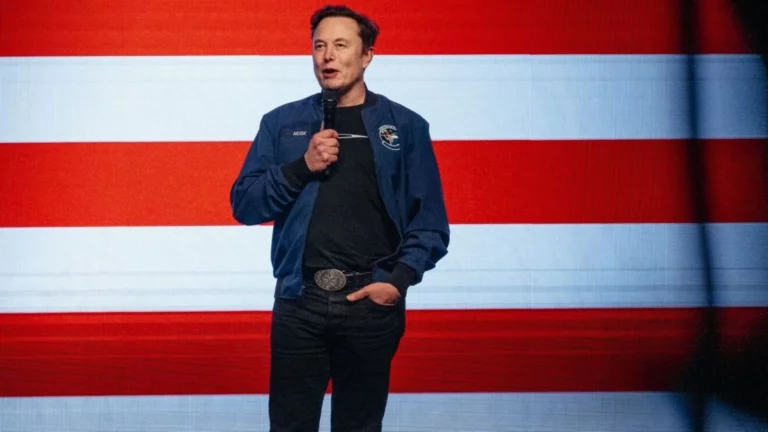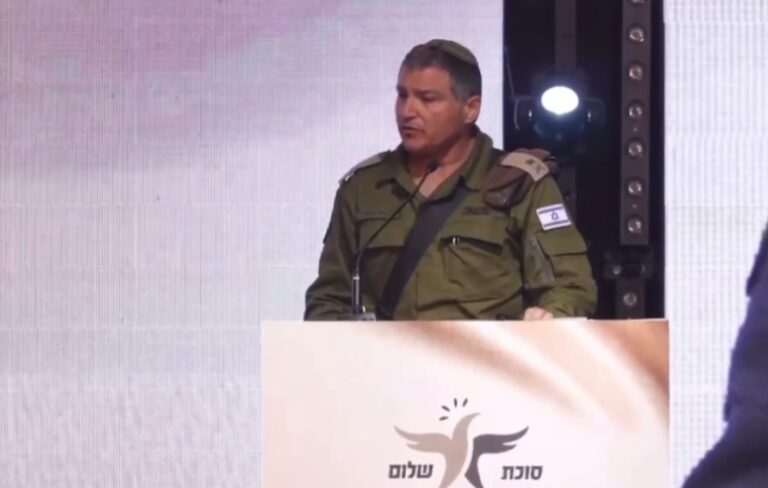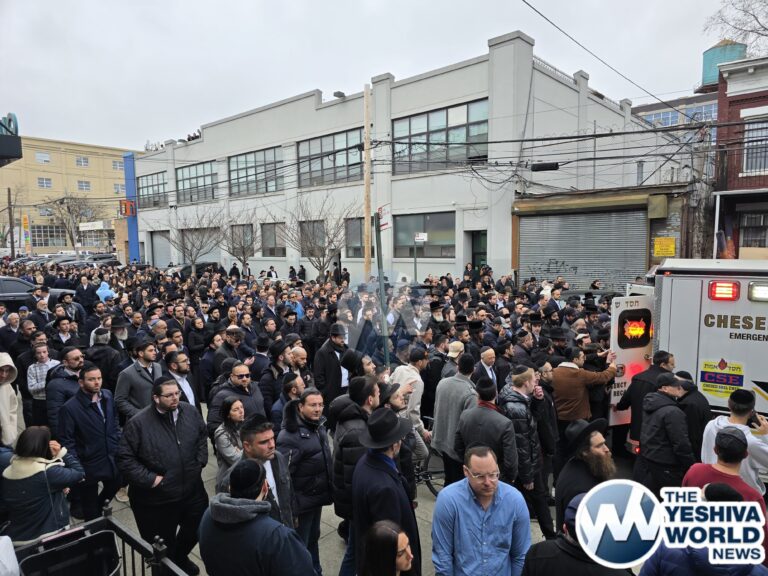 Chareidi journalist Avi Bloom interviewed Ari Deri, who stated the Shas party would have been launched even without the assistance of Rabbi Shach zt”l and Maran Rav Ovadia Yosef Shlita.
Chareidi journalist Avi Bloom interviewed Ari Deri, who stated the Shas party would have been launched even without the assistance of Rabbi Shach zt”l and Maran Rav Ovadia Yosef Shlita.
The interview provides a firsthand account of the relationship between Maran HaRav Shach and Deri, the launching of Shas, Degel HaTorah and other events that had a direct impact on the Torah community in eretz yisrael.
The following is a translation of the interview.
No one knows better than Aryeh Deri just how much HaGaon HaRav Elazar Menachem Mann Shach zt”l sacrificed towards implementing his idea. On the other hand, there is no one capable of lamenting like him regarding the moment when he distances himself, when the Rosh Yeshiva decided to actualize his decision at a high price, resulting in a chasm with the man who was closest to him.
During a three hour conversation, addressing being close to the Gadol HaDor zt”l, the split, Deri appeared both pained and content as he reflected on those events. “I admired him. I feel as if the events occurred today” he admitted at the conclusion of the interview.
Bloom:
Deri was careful regarding the respect for Gedolim, but contrary to other politicians, his respect does not prevent him from giving comprehensive responses. He details the relationship with Maran Rav Shach zt”l with much respect and not appearing to make an effort to mask the true events as the story unfolds.
When did Maran Rav Shach first hear the name Aryeh Deri?
In order to address this, we must first address three events that occurred in 5743, a year before Shas was established. Rav Shach broke from the Agudas Yisrael Moetzas Gedolei HaTorah. The Litvish community was left without a political framework. In 5743 there were local elections and in three municipalities, the new Sephardi list won, gaining three mandates. This included Nissim Ze’ev in Yerushalayim, Rafael Pinchasi in Bnei Brak and Yosef Cohen in Tiveria.
This all took place without Rav Ovadia, without Rav Shach, and without Deri. That same year the Knesset decided Rav Ovadia may not serve another term as chief rabbi as a result of a process initiated by Minister Moshe Nissim, National Religious Party and Agudas Yisrael, each for their own reason.
Where were you in this story?
Me? I was out of things. I got married and moved to Maale Amos. I was a young avreich but still asked to help. I remember, it was me ad Rabbi Dovid Yosef. We went to Moshe Shachal, who headed the Labor Party, who barely gave us the time of day.
After all this the election campaigns began and the Sephardim, Nissim Ze’ev, Pinchasi and Cohen said if they win, they will establish a Sephardi list in their city for the Knesset elections. As one would expect, this did not sit well with Agudas Yisrael. Munia Shapira came to visit Rav Ovadia to persuade him to enter Agudah. They of course promised him a high place on their list without having to rotate. They also offered him a place in the Moetzas Gedolei HaTorah. They explained they did not make such an offer in the past because he does not know Yiddish, but now, they are willing to conduct meetings in Hebrew to accommodate him.
You mean to say that in this early stage Rav Shach was not at all involved?
A this stage, it was all talk. The first connection, the general idea took place in Yeshivas Lev Banim. I was there with Rabbi Aryeh Weinberg, Avraham Ravitz and Yomtov Rubin. It was there that the idea was raised for the first time, to take advantage of the fact that Rav Shach had to break from Agudah and Rav Ovadia was forced to leave the Chief Rabbinate, seeking to make a connection.
We began thing just how to accomplish this. Rabbi Weinberg and the others encouraged me to telephone Yechezkel Ischaik, who is related to me through my brother Rav Yehuda. At the time I was all of 24. I introduced myself and asked if we could meet. I traveled to Bnei Brak and paced around for seven hours until I finally got in to meet with Rav Shach. It was during that time, the pacing, that the idea was born.
How did you even come to think of such an unnatural shidduch?
This was undoubtedly a unique unnatural shidduch, trying to connect Rav Ovadia, who disagreed with the Chazon Ish on Shmitah and the Ponevezh Rosh Yeshiva.
I had to start at the very beginning, to explain to them who Rabbi Ovadia Yosef really is. The rav’s image in Bnei Brak was a far cry from reality. I told them how Rav Ovadia stood against all the pressure, and instructed followers to vote Gimmel (Chareidi), not NRP (National Religious Party), which controlled everything in those days.
I detailed how he traveled abroad for Chinuch Atzmai. After seeing there was chemistry and some common ground, we began to discuss the infrastructure. How would this take shape and what would it look like, including who would guarantee Rav Shach would still have his influence after elections. We spoke of a Moetzas Gedolei Yisrael that they would be members of, HaRav Badani, HaRav Shalom Cohen and HaRav Shabtai Atoun, roshei yeshiva that adhere to Rav Ovadia and his rulings but regarding the direction of the new entity, it would be Rabbi Shach.
During this process, did you have any direct contact with Rav Shach?
I personally only met with him after we agreed on the issues among ourselves. Ischaik asked me to come and for me, I was only in front of Rav Shach once before, as young bachur seeking advice regarding a shidduch. I entered with trepidation but Baruch Hashem, I received the self confidence. I received a warm welcome and began to speak. I explained who Rav Ovadia is, and why I think we must join forces and move together for if not, we will become fragmented and the message that would reach the streets is that one is not necessarily compelled to following the Torah world.
I must state the truth, if Shas would have been established without Rav Shach and without Rav Ovadia, this would have provided the basis for the Sephardi list they wanted to build for the Knesset elections. It is entirely possible that Rav Ovadia would not have become involved if not for the push from Rav Shach.
It worked and I must admit that for me, it was more difficult with Rav Ovadia Yosef than with Rav Shach. It was a difficult leap, to move from the world of rabbanus to politics, and it did not feel natural, to shift from a word of dayanut and piskei halacha to a world of meetings and more, as a partner with HaRav Shach. These were yet uncharted waters for me.
Bloom: The Bnei Brak – Yerushalayim Line
Even today, 25 years later, Deri cannot say with absolute certainty if the Sephardi party would have come about without the support from the Litvish rosh yeshiva.
Deri:
One must tell the truth – Shas would have come about without Rav Shach and even without Rav Ovadia because the infrastructure was already in place for the Sephardi lists that ran in the local elections. What exactly would have occurred, if we would have passed the minimum threshold, if something else would have occurred – these are questions that I cannot answer. It is entirely possible that Rav Ovadia would not have become involved without the rosh yeshiva’s push.
For an entire term you successfully managed to maneuver between Jerusalem and Bnei Brak. How did you do it?
You must remember, there were no other options. There was the struggle against Agudah, representing the chassidim. They too benefited because we got the votes but don’t forget the Litvish community never dreamed of joining ranks. We provided them the vehicle that they could support while keeping the world of Torah in the picture.
Nevertheless, how does one manage two Gedolim when they are simply opposites?
I must admit I was surprised by the level of cooperation between them during the firm term. Even during the coalition talks we introduced new concepts. Remember, in 1977, Agudah had to be wooed into joining the coalition. We entered the coalition, in the name of Rav Shach and the Steipler and demanded cabinet posts. We wanted to oversee religious affairs and received the interior ministry as a consolation prize. Rav Shach gave us full backing. He explained that Agudas Yisrael represented the interest of the Torah world but Shas represented the traditional voters as well. I don’t think we could have pulled it off without Rav Shach’s support.
Ultimately, you were compelled to chose a side
Not during the first term. They were both pushing in the same direction on most issues. I do not recall any major disagreements with one exception, Operation Moses, the aliyah of the Ethiopians.
Rav Ovadia in his p’sak as Chief Rabbi stated they were from the Tribe of Dan and based on his ruling, Prime Minister Golda Meir decided to permit them to come. During the tenure of Prime Minister Shamir, the chief rabbis, Rabbi Mordechai Eliyahu and Rabbi Avraham Shapira ruled they require ‘giyur l’chumra’.
Then Minister of the Interior Rabbi Peretz appeared in the media supporting Rav Ovadia’s position. You can imagine what was taking place in Bnei Brak. It was not pleasant. I was Rav Peretz’s aide and I went to Rav Shach. After all, it was a halachic matter. What could I possibly say to him? Nevertheless we spoke and I presented the position of Rav Ovadia and I must say that Rav Shach sat patiently and listened.
There sat a rosh yeshiva, close to 100-years-old, Gadol HaDor, and listened for one hour to a young Sephardi rookie such as myself.
Rav Shach had a marvelous trait. He listened. He permitted one to speak, an ability to sit for hours, to go back and forth discussing an issue just as one does during learning. When he entered into a matter, he checked, crosschecked, probed and most of all listened. Whatever the matter, he took it to the end.
To the extent that it surprised you?
Without any doubt. On any topic and there was an endless number of topics and disputes. I watched and observed how he listened to both sides, probing time after time, listening as if we were the same age, checking each fact and detail and only then would he render a decision.
Bloom: Head and Heart
Paradoxically, Deri found himself in the High Court of Justice not only when he stopped serving as interior minister, but when he received the appointment as well. It was the case involving Suzy Miller. The court compelled then minister, Rav Peretz, to categorize her as a Jew.
Deri:
I suggested an addendum, that whatever is written under ‘nationality’ in one’s identity card is not necessarily to be viewed as proof of one’s religion. Peretz disagreed, saying it would be a chilul Hashem [for the minister who is also chief rabbi of Ra’anana] to sign on such a statement. On that same morning, [then left-wing Meretz MK] Shulamit Aloni filed a contempt of court query in Knesset against Peretz for his refusal to sign. Rav Peretz indicated he would resign.
We visited Rav Shach at 6am seeking his direction. At the time, I was director-general of the ministry of the interior. The debate was tense and emotional. At one point, Rav Peretz asked to be left alone with Rav Shach. I saw Rav Shach with tears in his eyes walking arm and arm with Rav Peretz. He said “HaRav Peretz will resign today”.
I jumped up and said nu! I will also resign as director-general. He looked at me, from the bottom up and said “yungerman, there is a brain and there is a heart”.
What was the height of your relationship between the two of you?
I cannot point to any one specific point. Rav Shach brought me in, very close to him during that time period. I was told that before I would arrive he would put on Shabbos clothes and say ‘kvod malchus’. When I realized just how serious he viewed our relationship, our meetings, I came weekly on the same day and at the same time. I was truly uplifted. Before every yomtov I would come with my wife and children and my small son Yankie would sit with him. They developed a relationship like a grandparent and a grandchild. It is truly amazing how the man knew how to be hard handed as a leader, but on the personal level, like a great grandfather with a small child.
The visit to Ponevezh was an unforgettable event. you don’t begin to understand the relevance, the minister of the interior arrives as the guest and patron of the mayor of Bnei Brak, Moshe Ehrenstein, during a sensitive time in the city. He arrives with the minister that is responsible for all local government, and where did the day begin, at the yeshiva.
We arrived during the first seder. There were avreichim there older than I was. Rav Shach was seated learning, as if nothing was taking place around him. Truthfully, I was embarrassed entering the yeshiva like this, surrounded by the media. But Rav Shach insisted that we include the yeshiva in the official visit. Then he stood up and kissed my cheek and took us around.
When one repeats a lie enough times and does not deny it, then he begins to believe it. Perhaps the error was that I never denied it. After all, I was the biggest supporter of the coalition government and it was Agudas Yisrael that spearheaded the nasty maneuver behind our backs.
We went downstairs to the shiur room and the roshei yeshiva were there together with representatives of Agudah. Then he said ‘what this young man accomplishes in a year Agudas Yisrael did not do in 40 years’. You might be surprised but when I arrived at Rav Ovadia that night, he was not pleased to hear of the events.
He warned me that from now on, Agudah Yisrael would be looking for me. You must understand that Rav Shach did not just stand there and speak, but he felt that for a first time the roshei yeshiva had someone. It was the first time he knew he could pick up a phone and call the minister of the interior in the name of the roshei yeshiva, to ask and immediately receive a response. That was a big thing back then. Gafne was one of my aides.
He handed all the kollelim. It was a time period that yeshivos were not lacking, not for anything.
If you all got along so well, why was Degel HaTorah established?
Wow, you don’t even realize what a potent question that is. The elections of 5749 were rapidly approaching and there was an undercurrent that the Litvish community wants to run independently. Rav Ovadia took this to heart. We all realized this was not good for us since the yeshivish community represented a large percentage of our voters. I had a tense meeting with Rav Shach and from my understanding, the tzibur wanted Ashkenazi elected officials, and they approached him with the revolutionary idea. I told the rosh yeshiva why not include Ashkenazim in Shas. He was shocked. He asked “won’t this hurt you?” to which I replied, no it will not.
I offered to put Ashkenazi representatives the third and fifth slots as well as making sure there are people who know how to address the Sephardi tzibur, like Avraham Ravitz and Moshe Jacobson, so it would be good for all. Rav Shach asked if Rav Ovadia would agree. I told him that I believe so. This I explained was better than a split, adding Rav Ovadia was quite hurt over the news, understandably so. After all we have been through together, to split into two parties now! He agreed so I went to speak with Rav Ovadia and he too agreed.
I spoke with Ravitz and Jacobson, explaining the situation, and they agreed to join our list providing I invited Ravitz to lead the speakers in the Binyanei Ha’uma atzeres. It seemed to work all around, and Ravitz benefited and it brought Shas votes and Degel felt if it is good for Shas it is also good for us.
What is certain is that for Ravitz, his life would have been much easier if they remained with Shas. What led to the explosion?
Rav Shach called me back and changed his mind. He told me that he was told the moment there are Ashkenazim in Shas, the Sephardim will no longer vote for the party. I tried arguing but I came to the realization that Rav Shach was not interested in running together under one party but he did not wish to hurt Rav Ovadia. In his wisdom, he presented it as something that would hurt Shas.
Avi Bloom:
At this time, the tension was palpable and Deri understood that the reasoning that worked till now had collapsed before his very eyes.
Deri:
It was an extremely tense time period, the yomim tovim and shortly before the elections which were to be held in Cheshvan. I experienced some very difficult days at Rav Ovadia’s home, for after all, they blamed me for doing more for the Ashkenazim than the Sephardim. I always told them it is for our good but now, look what occurred.
Rav Shach understood this and did something out of the norm. On Chol Hamoed Sukkos he arrived with Ravitz and Ischaik at Rav Ovadia’s Sukka on his small balcony in his old home. Rav Shach in person, on chol hamoed, signed a letter that instructed all Sephardim to vote Shas. For me, this was a yomtov. As Election Day drew near and Degel officials saw that activists were following Shas. They applied considerable pressure on Rav Shach to withdraw the letter, but he remained loyal to Rav Ovadia.
It did not hold together for too long. In the middle of the term, it all broke apart.
It began well despite the tensions of the upcoming election. With many miracles we managed to keep our base in Jerusalem and Bnei Brak, and following elections, everything reverted back.
Not only didn’t we lose, but we got six mandates and Degel two. Rav Ovadia knew that I continued to meet with Rav Shach, seeking his advice. He sent me to consult with him. Everything was above board despite the fact that now, it was clear that Shas was not Degel.
For example, Rav Shach did not permit Degel to accept a cabinet post. We continued operating along his lines, with cabinet posts.
(YWN – Israel Desk, Jerusalem)











2 Responses
The social factors that led to Shas go back for a generation in which the two major parties were dominated by secular Ashkenazim who by that time were a clear minority (they perhaps gained plurality status when the Jews from the former Soviet Union arrived).
Likud was usually known as the Sefardic party….especially under the tutelage of PM Menechem Begin.